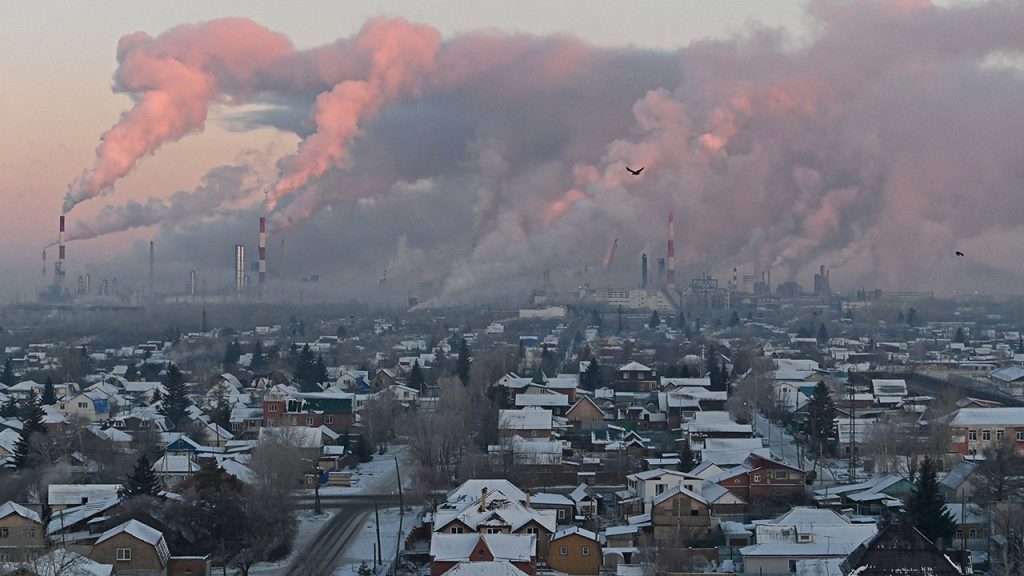The recent imposition of sanctions on Russia’s energy sector by the United States has sparked a strong reaction from Moscow, with the Russian Foreign Ministry denouncing the measures as a destabilizing force in global markets and a deliberate attempt to harm the Russian economy. The ministry’s statement underscores Russia’s commitment to its role as a major player in the global energy market, emphasizing that it will continue to pursue large oil and gas projects despite the sanctions. The statement also highlights Russia’s intention to respond to these actions, which it deems “hostile,” while formulating its foreign policy strategy. This response underscores the growing tension between Russia and the West, particularly in the context of the ongoing conflict in Ukraine.
The core of the Russian Foreign Ministry’s critique revolves around the perceived motivation behind the sanctions, which it views as a desperate attempt by the outgoing Biden administration to inflict damage on the Russian economy, even at the risk of disrupting global energy markets. This perspective characterizes the sanctions as a politically motivated maneuver rather than a genuine effort to promote peace or stability. The statement further accuses the “Russophobic lobby” in the West of attempting to entangle the global energy sector in the “hybrid war” that Russia believes the United States has initiated. This narrative portrays Russia as a victim of Western aggression and underscores the deep mistrust that characterizes the relationship between the two sides.
The sanctions themselves represent a significant escalation of U.S. pressure on Russia, targeting key players in the country’s energy sector, including Gazprom Neft and Surgutneftegas, along with a substantial number of vessels involved in transporting Russian oil. This targeted approach aims to restrict Russia’s ability to generate revenue from its oil exports, thereby weakening its economic standing and potentially influencing its actions in Ukraine. The inclusion of numerous vessels, many of which belong to a so-called “shadow fleet” operated by non-Western companies, demonstrates the breadth of the sanctions and the U.S. determination to curb Russia’s access to global shipping networks for its oil trade.
The Ukrainian government, naturally, views these sanctions as a positive development in the ongoing conflict. President Volodymyr Zelenskyy has expressed confidence that the measures will significantly impact Moscow’s finances, ultimately contributing to a quicker resolution of the war. This perspective highlights the strategic importance of the energy sector in the conflict, with both sides viewing it as a crucial lever of influence. For Ukraine, restricting Russia’s oil revenues is seen as a way to weaken its adversary’s military capabilities and create pressure for a negotiated settlement.
The timing of the sanctions, coming as a new administration prepares to take office in the United States, adds another layer of complexity to the situation. While the sanctions are presented as a means to give the incoming administration leverage in negotiations with Russia, the potential for shifting U.S. foreign policy under new leadership creates uncertainty about the future trajectory of the conflict and the role of sanctions in resolving it. The Russian Foreign Ministry’s statement, referencing the “convulsions in the White House,” suggests a perception of instability in U.S. policy and a belief that the sanctions are driven by short-term political considerations rather than a coherent long-term strategy.
Ultimately, the new sanctions represent a significant escalation in the economic and political pressure on Russia, with potentially far-reaching consequences for global energy markets and the ongoing conflict in Ukraine. The contrasting perspectives of Russia and Ukraine on the sanctions underscore the deep divisions that remain and the challenges of finding a peaceful resolution. The long-term impact of these measures will depend on various factors, including the response of other countries, the effectiveness of the sanctions in curtailing Russian oil revenues, and the evolving geopolitical landscape, particularly with the transition to a new U.S. administration.

